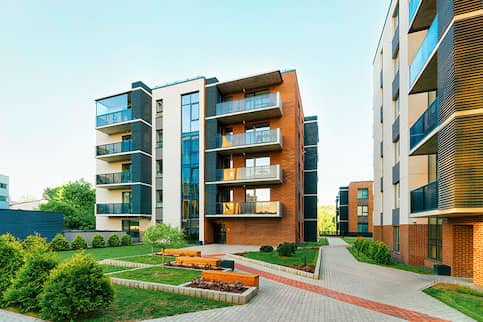The Role of an HOA in Developing and Enforcing Area Guidelines for Residents
The role of a Homeowners Association (HOA) in applying and developing neighborhood guidelines is fundamental to maintaining a natural and organized residential setting. By developing clear guidelines that regulate aspects such as residential or commercial property upkeep and area conduct, the HOA not only sets criteria for citizens however additionally promotes a sense of belonging and accountability.
Recognizing House Owners Associations
Homeowners organizations (HOAs) work as regulating bodies for property communities, playing an important role in keeping home values and cultivating a sense of area. Normally formed by programmers, HOAs are composed of home owners within an assigned location who choose a board to supervise the organization's activities. The key functions of an HOA consist of imposing area policies, taking care of typical locations, and organizing area occasions.
HOAs operate under a set of controling documents, consisting of conditions, limitations, and commitments (CC&R s), which outline the legal rights and responsibilities of property owners. These laws aim to make sure that residential properties are kept to a certain requirement, consequently shielding the aesthetic charm and total worth of the community. Additionally, HOAs typically accumulate charges from homeowners to fund maintenance, landscaping, and other social work.
The visibility of an HOA can dramatically affect the living experience within a neighborhood (hoa condo). While some residents value the structured environment and facilities offered, others may find certain policies restrictive. Stabilizing the passions of all home owners is crucial for an HOA to operate properly, guaranteeing that it serves its intended purpose of enhancing community living while valuing specific house owner legal rights
Establishing Neighborhood Guidelines

To begin, an HOA must perform surveys or hold meetings that enable homeowners to voice their issues and pointers. This participatory procedure fosters a sense of possession and boosts compliance. Next off, the HOA board have to assess the responses to determine common motifs and concerns that require official incorporation in the standards.
It is likewise vital to make sure that the guidelines are clear, concise, and quickly understood. Ambiguities can cause misunderstandings and disputes, threatening the purpose of the standards. The standards need to be thorough, covering numerous facets of area living, consisting of building upkeep, sound degrees, and usage of typical areas.
Enforcement of Guidelines
Effective enforcement of community rules is vital for preserving order and guaranteeing that all locals adhere to the established standards. An HOA has to implement a structured method to implement these guidelines, which typically includes a mix of tracking, interaction, and penalties for non-compliance.
First, routine examinations and area patrols can assist identify offenses, guaranteeing that regulations are regularly used throughout the community. This proactive surveillance enables the HOA to address problems prior to they rise, fostering a sense of accountability amongst citizens.
Second, clear interaction is essential. Locals must be informed of the rules and the treatments for reporting infractions. An open line of interaction urges citizens to voice worries and seek information on standards, which can boost compliance.

Finally, when violations take place, the HOA needs to implement repercussions as described in the governing papers. By efficiently enforcing regulations, an HOA can cultivate an unified living atmosphere that mirrors the cumulative worths of its locals.
Advantages of HOA Laws
Numerous advantages occur from the execution of HOA guidelines, which serve to improve the quality of life within an area. One primary benefit is the maintenance of residential or commercial property values. By applying requirements for visual appeals and maintenance, HOAs make certain that homes and typical locations remain eye-catching, fostering a desirable living environment that can bring about enhanced property values with time.
Additionally, HOA guidelines advertise consistency and uniformity within the area. This coherence in style and upkeep aids to create a feeling of belonging amongst locals, adding to area pride and a positive environment. In addition, established guidelines assist in problem resolution among next-door neighbors by giving clear expectations and protocols for habits, consequently decreasing disputes.
An additional substantial advantage is the stipulation of common services and solutions. Several HOAs take care of more information community facilities such as clubs, parks, and swimming pools, which improve leisure chances for locals. These features not he has a good point just enhance the lifestyle however also encourage social communication.
Inevitably, the guidelines set forth by an HOA cultivate a well-organized, unified area, making certain that homeowners appreciate a high requirement of living while promoting a supportive setting for all home owners.
Usual Difficulties Faced by HOAs
In the middle of the advantages that property owners associations (HOAs) can give, they additionally come across a range of difficulties that can prevent their performance. Several house owners may not participate in conferences or area tasks, leading to a detach between the HOA board and citizens.
Disagreements can develop when citizens feel that enforcement is inconsistent or biased, possibly leading to disputes within the area. Furthermore, HOAs usually encounter monetary constraints, which can restrict their capability to maintain typical areas or fund community jobs.
Additionally, navigating legal intricacies can be daunting for HOAs. They have to ensure conformity with state regulations while managing their very own regulating files, which can be a resource of complication. Altering demographics and advancing neighborhood needs need HOAs to adapt their guidelines, often meeting resistance from pop over here long-standing residents that are accustomed to standard standards. Attending to these obstacles is important for promoting a thriving and unified neighborhood.
Final Thought

By formulating clear policies that regulate facets such as property maintenance and neighborhood conduct, the HOA not just establishes requirements for residents but likewise cultivates a feeling of belonging and liability.Homeowners organizations (HOAs) serve as controling bodies for domestic communities, playing an important role in preserving building worths and fostering a feeling of community. Several house owners may not participate in meetings or neighborhood tasks, leading to a detach in between the HOA board and homeowners. Changing demographics and progressing neighborhood needs call for HOAs to adjust their standards, usually satisfying resistance from long-lasting homeowners who are accustomed to traditional standards. Via the growth of clear policies and consistent enforcement, HOAs promote residential or commercial property upkeep, neighborhood pride, and trust fund amongst residents.